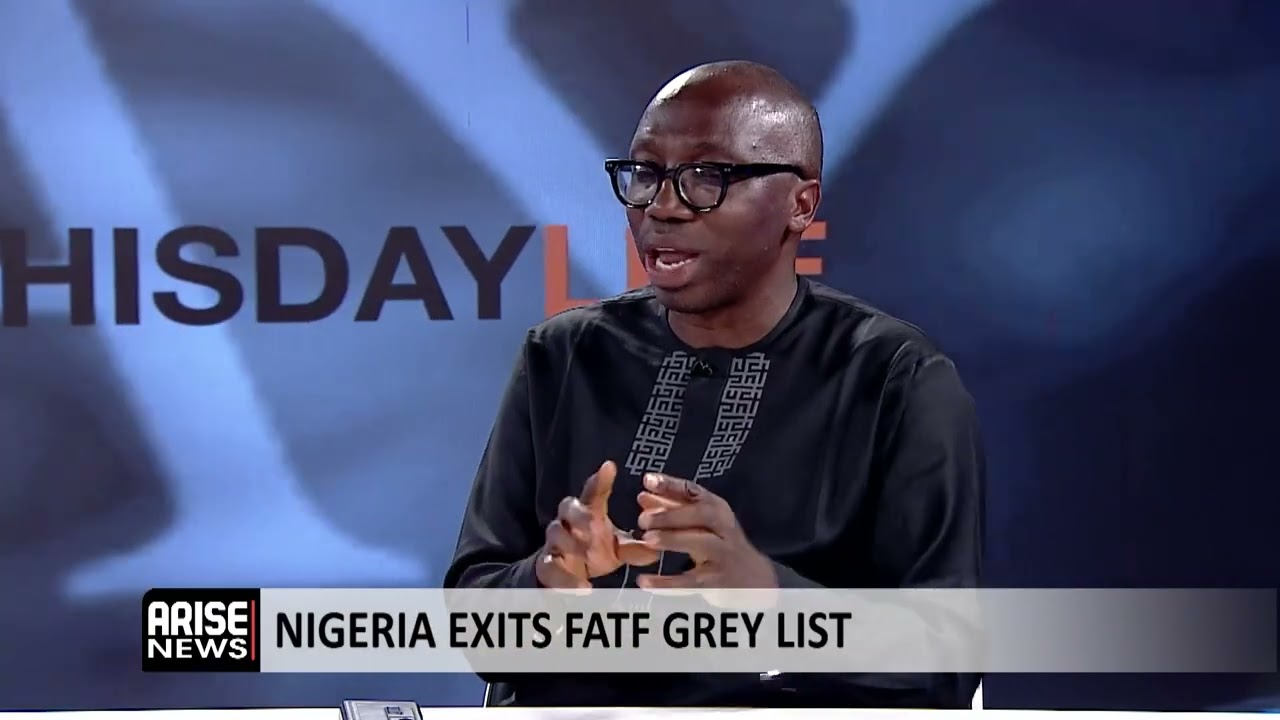
Professor of Strategic Management and Director of the Public Sector Initiative at Lagos Business School, Prof. Franklin Ngwu, has said that Nigeria’s removal from the Financial Action Task Force (FATF) Greylist is a positive development but should not be celebrated as a major victory, stressing that the country must focus instead on sustaining deeper governance and institutional reforms.
Speaking in an interview with ARISE News on Sunday, Prof. Ngwu cautioned that while the delisting signals progress in Nigeria’s anti-money laundering and counter-terrorism financing framework, it does not reflect broader improvements in governance, accountability, or regulatory quality.
“On the surface of it, it is justified that we are no more on that list. It’s good for the country, for the economy, and for everything,” he said. “But a deeper question we should ask is, why did we even get on that list in the first place? We shouldn’t be celebrating leaving the Greylist when we should be aiming to become a full FATF member.”
He likened Nigeria’s removal from the list to a student who failed an exam, was given a chance to re-sit, passed only a few subjects, and yet the family began celebrating.
“Being removed from the Greylist doesn’t mean we are now doing well across all governance indicators,” he said. “This is only one element. Issues like the rule of law, control of corruption, regulatory quality, and voice and accountability are still weak.”
Nigeria was delisted from the FATF Greylist alongside South Africa, Mozambique, and Burkina Faso at the organisation’s October 2025 plenary in Paris after fully implementing a 19-point action plan. The FATF, a global watchdog on money laundering and terrorism financing, said Nigeria had strengthened its legal and institutional frameworks through reforms coordinated by the Central Bank of Nigeria (CBN), Nigerian Financial Intelligence Unit (NFIU), and other key agencies.
However, Prof. Ngwu warned that the country risks falling back on the list if lessons are not internalised.
“We were on the list during President Obasanjo’s administration before reforms led to the creation of EFCC, ICPC, and NFIU. Now we’ve gone back and come out again,” he said. “The critical question is: how do we sustain these reforms so we don’t return to the Greylist in a few years?”
The scholar called for “deep, insular reforms” across Nigeria’s governance and legal systems, arguing that paper reforms without behavioural and institutional change will not endure.
“When I talk about insular reforms, I mean reforms that go beyond documents and pronouncements,” he explained. “They must reflect in how we conduct ourselves as citizens and institutions. When I go to court, I should expect justice. When there’s an election, it should be fair and credible. If not, these reforms will remain short-lived.”
Prof. Ngwu emphasised that reforms must focus on strengthening Nigeria’s regulatory institutions such as the CBN, PENCOM, NICOM, NDIC, and SEC, ensuring they balance prudential and conduct regulation effectively.
He also stressed the need to re-evaluate Nigeria’s governance structure to determine whether it aligns with the country’s social realities.
“We need to ask: is this structure of governance suitable for us? Our democracy, our legal system—do they reflect who we are as a people?” he said. “In the 1960s, we had a regional system. Did it work? Now we have this democratic system—is it working? We must ask these hard questions.”
On the issue of public trust, Prof. Ngwu said confidence in government remains extremely low across all levels—federal, state, and local—due to years of unfulfilled promises and institutional inefficiency.
“From my own engagement with Nigerians across the country, trust and hope in government remain very low,” he said. “It’s not just the federal government; it cuts across the judiciary, the police, and local authorities. We must rebuild trust through consistent delivery, transparency, and fairness.”
He acknowledged the government’s efforts under President Bola Tinubu’s administration but said that genuine change would depend on consistency and commitment to reform beyond political cycles.
“The government is trying, but it must try harder. The real challenge is sustainability. When reforms depend on individuals rather than institutions, they die when those individuals leave office,” he warned.
Concluding, Prof. Ngwu reiterated that Nigeria’s delisting from the FATF Greylist should serve as a wake-up call rather than a cause for celebration.
“It’s good that we’ve been removed, but this should push us to think deeper about who we are and how we govern,” he said. “Reforms are good, but will they last after this government? That is the real question.”
Boluwatife Enome


